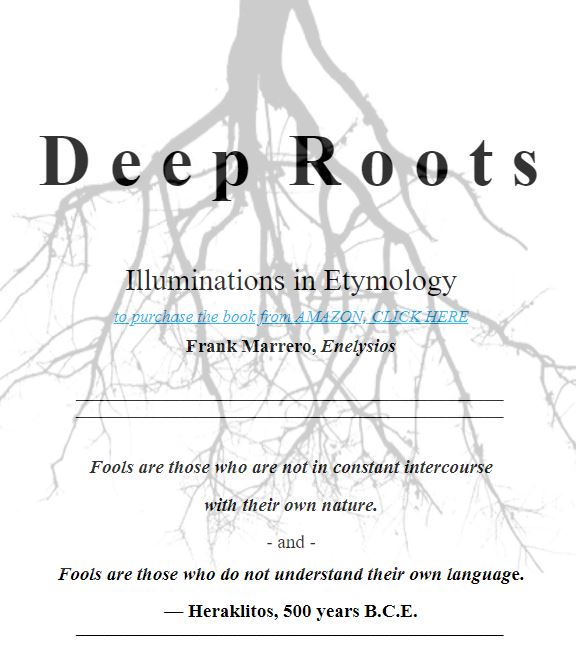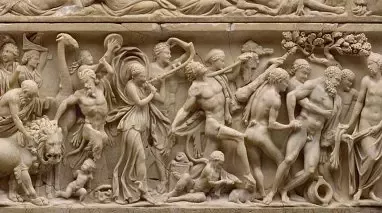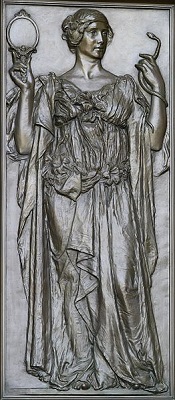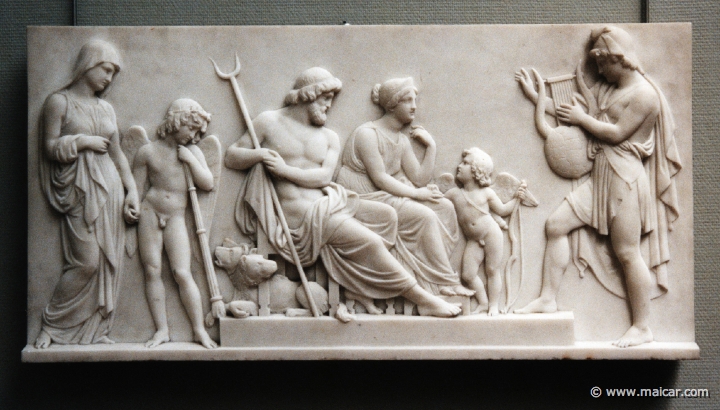Truth


***
Baseball players and carpenters know what it means to declare a certain piece of wood “true”. It is firm, straight, and resonant. In fact, the Germanic words “true”, “tree”, and “trust” share a common root in the PIE root deru- “to be firm, solid, steadfast”.
But “truth” is more than merely steadfastly or resonantly true. The original western conception of Truth was not cast by the German philosophers (full disclosure: Heidegger was my first philosophical love), but by our Hellenic founders.

The word ‘Hellenism‘ is derived from the word ‘Hellen’ which means Greek. Thus Hellenism represents Greek culture and spirit.
Where Germanic English says “truth”, the Hellenes utter “alethia”.


But to feel or understand what the philosophers of Hellas meant by “alethia” is not easy. To glimpse alethia’s truth involves Orpheus’ trip to the Underworld, a too-brief survey of original philosophy, and the awareness that is greater than self and death.

Hades and Persephone listen to Orpheus’ song in the Underworld.
5132: H. W. Bissen, 1798-1868: Orpheus pleading with Pluto and Proserpina to restore Eurydice to him. Ny Carlsberg Glyptotek, Copenhagen.
It was said that a spiritual master named Orpheus went through the Underworld, saw the after-death realms, and conveyed that story and its wisdom to humankind. According to him, when you died you were possessed by an extreme thirst. It was the sum total of all the things you wished for, hoped for, thirsted for while alive.
First, the newly dead are first judged on how well they kept their oaths (juris) and promises. Next, the parched psyches come upon the Pool of Lethe, the waters of forgetfulness, the drink of unconsciousness. (Lethe is the root of our lethargic and lethal.) Most fall upon the waters and satisfy themselves in the lethargy of oblivion, but then they wander without end in the grey flatlands of Asphodel.
But those who had been initiated into the mysteries and took up a life of spiritual practice knew to not settle for the first satisfaction that appears. Indeed, when presented with what seems to be an easy solution, they use that siren (lit. “binding”) call as the signal to look up. Initiated souls trained during life by metanoia know to turn their vision up from the self-satisfaction of forgetfulness and to the vision of a white tree that appears in blessing.
Going the way of the white tree, blessed souls find another pool, the waters of Remembrance, Mnemnosyne (root of our memory). Genuflecting to drink these immortal nectars, one’s thirst is truly quenched.
The “secret women’s mysteries” appear in the submission to joy. One is washed in the transmission of communion, “like a thirsty kid who has fallen into milk.” Via communion, one enters the Fields of Elysium with its eternal celebration. Via communion comes union and Orphic “self-realization”.

Orpheus’ description of the immortal process of spiritual realization is confluent with yogic analyses of esoteric processes. Indeed, we learn to turn from temporary pleasures to longer lasting ones, from mere satisfactions of the flesh to the celebration of relationship. The harmonia that this temperance yields has rising tones of more and more wonderful tunings, until the harmony engendered by one’s restraint is resonant with the harmonia of the kosmos. Nectars within the brain are signalled by these higher tones and ooze their feeling of supreme being, overflowing the crater of the head. When your cup runneth over, this was called Stephanos, the nectar of truth, the overflowing crown of heart-joy.
Orpheus’ theological understanding of reality was conveyed to the later philosophers. Lethe was covered-ness and forgetfulness, while its opposite, alethia, was the revealing and remembered truth. Alethia, a-lethia, a-lethe, not Lethe, not lethargic, not covered or forgetful — alethia, revelatory Truth. Truth is initiated as one looks up from the ephemeral pool of driven-self-obsession.
It was Parmenides (fl. 500-460 B.C.E.) who shouted aletheia. But an extremely brief survey of original Hellenic philosophy shows the context of that exclamation.

Thales of Miletus (/ˈθeɪliːz/ THAY-leez; Greek: Θαλῆς (ὁ Μιλήσιος), Thalēs; c. 624/623 – c. 548/545 BC)
According to Aristotle et al, it was Thales (fl 600-546 B.C.E.) who first spoke philosophically/scientifically about reality, without the poesy of myth or the rhapsody of theology. Thales did not repeat the Orphic original egg theory, nor any mythological construct, nor did he stitch a flow of words together rhapsodically. Instead, he proposed prosaically that water must be at the origin of all things. Without water, there is no life.
Thales’ younger friend Anaximander also took up the new prosaic way of speaking, but he proposed that the “unbounded” was at the root of everything. He was followed by Anaximenes (died 528 B.C.E.) who said that there had to be something there, perhaps air. Xenophanes (d. 475 B.C.E.) then exclaimed that the unbounded infinite is not only at the root of all things, but is the very substance of all and All. Parmenides came along and asked, “Who cares what is the archetype? What is reality? What is the truth? How can we come to this alethia?” [Sokrates followed him and had a similar break with archetypal concerns. “If you will simply take care of your psyche, take care of your soul, your feeling being, then all these questions will be naturally resolved.”]
Parmenides’ Alethia or Truth, in this original regard, was in no way limited to the factual or material; the implication of alethia resonated with the Orphic and mystic descriptions: alethia was closer to conscious understanding, noble being, remembrance, divine revelation, and paradise. In this exalted sense, alethia describes the truth of reality as what is, when we have worked to remove all the coverings.
Alethia’s uncovered, un-forgetful, un-lazy quality bespeaks of the wise ones who look up from themselves, who look up from the lethargic pool of lethal self-satisfaction and see and feel the radiance of primal light in everything and thus the truth in everyone.
To engage the truth is very specifically not lazy. The spiritual process dedicated to the truth works every moment to un-cover, look up, and remember the perfect relatedness and glorious singularity of real existence. Understanding the lethargic underworld and understanding the immortal worlds is just a metaphor for understanding the real truth of existence now.